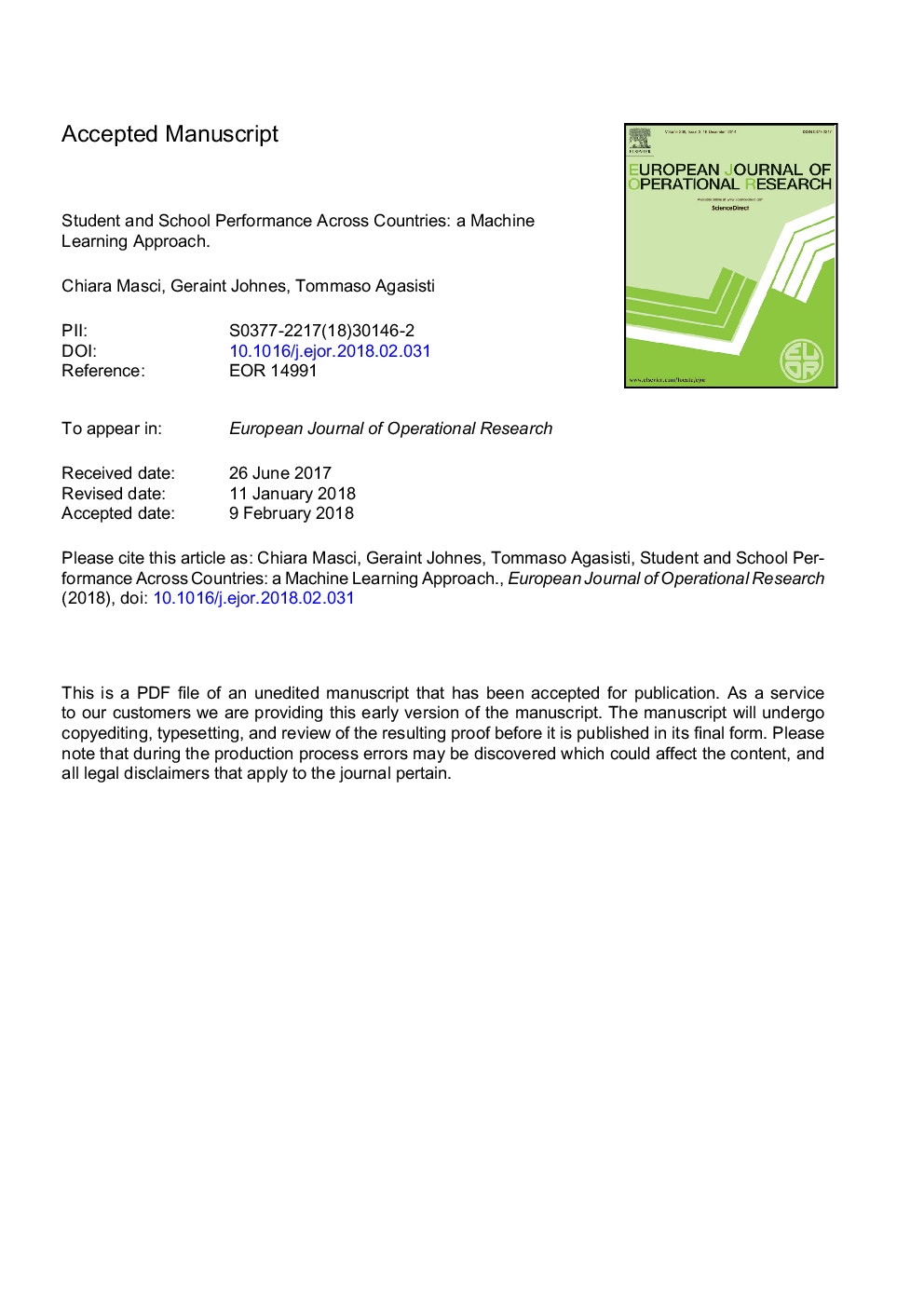| Article ID | Journal | Published Year | Pages | File Type |
|---|---|---|---|---|
| 6894688 | European Journal of Operational Research | 2018 | 56 Pages |
Abstract
In this paper, we develop and apply novel machine learning and statistical methods to analyse the determinants of students' PISA 2015 test scores in nine countries: Australia, Canada, France, Germany, Italy, Japan, Spain, UK and USA. The aim is to find out which student characteristics are associated with test scores and which school characteristics are associated to school value-added (measured at school level). A specific aim of our approach is to explore non-linearities in the associations between covariates and test scores, as well as to model interactions between school-level factors in affecting results. In order to address these issues, we apply a two-stage methodology using flexible tree-based methods. We first run multilevel regression trees in the first stage, to estimate school value-added. In the second stage, we relate the estimated school value-added to school level variables by means of regression trees and boosting. Results show that while several student and school level characteristics are significantly associated to students' achievements, there are marked differences across countries. The proposed approach allows an improved description of the structurally different educational production functions across countries.
Related Topics
Physical Sciences and Engineering
Computer Science
Computer Science (General)
Authors
Chiara Masci, Geraint Johnes, Tommaso Agasisti,
